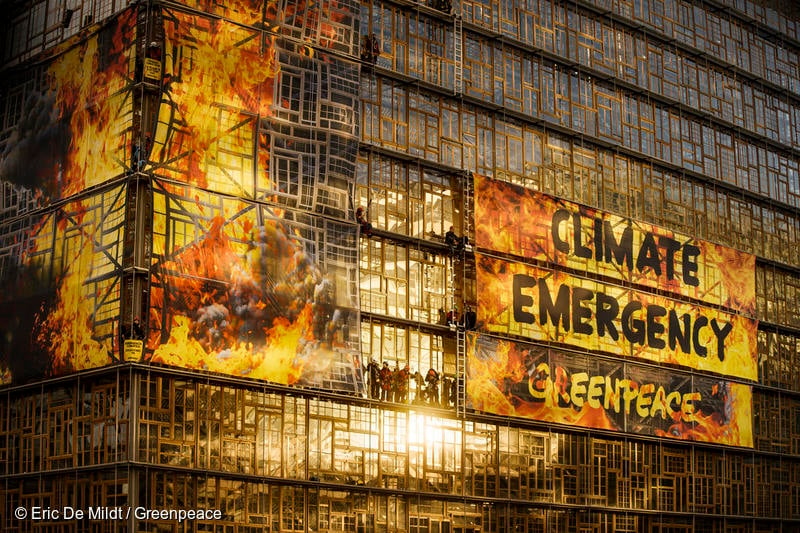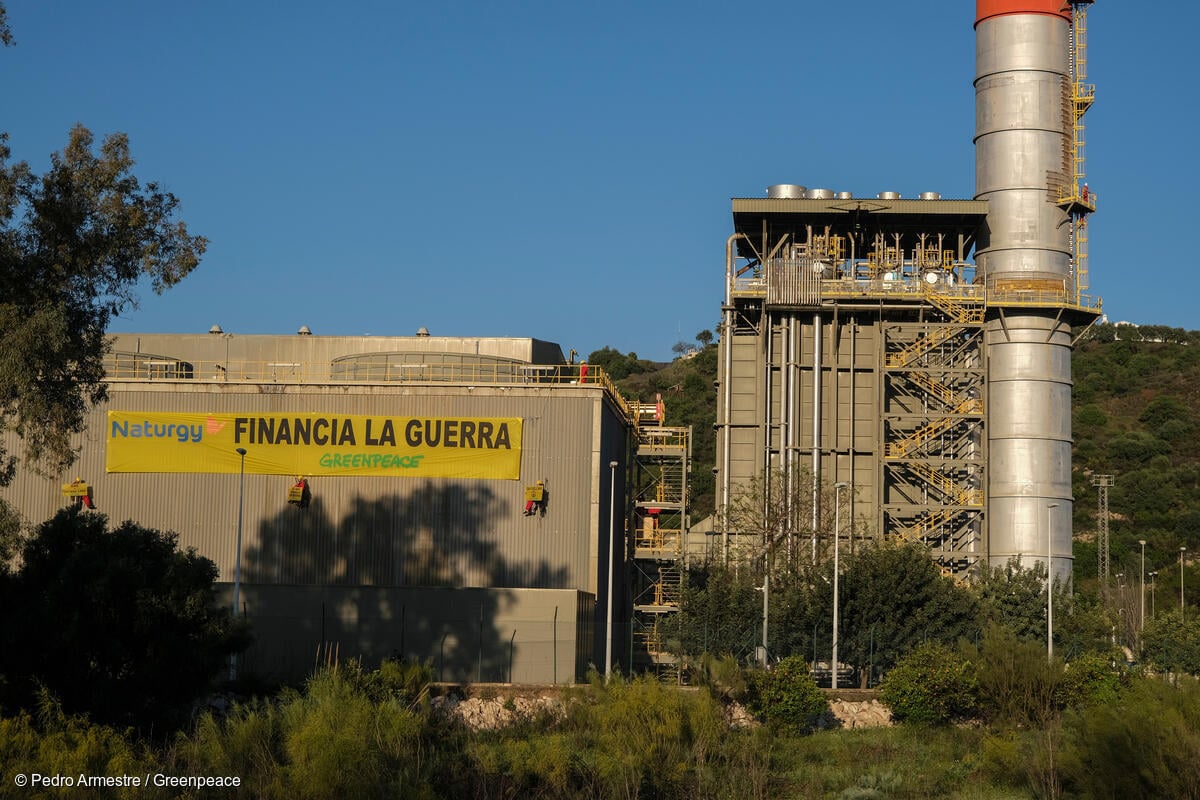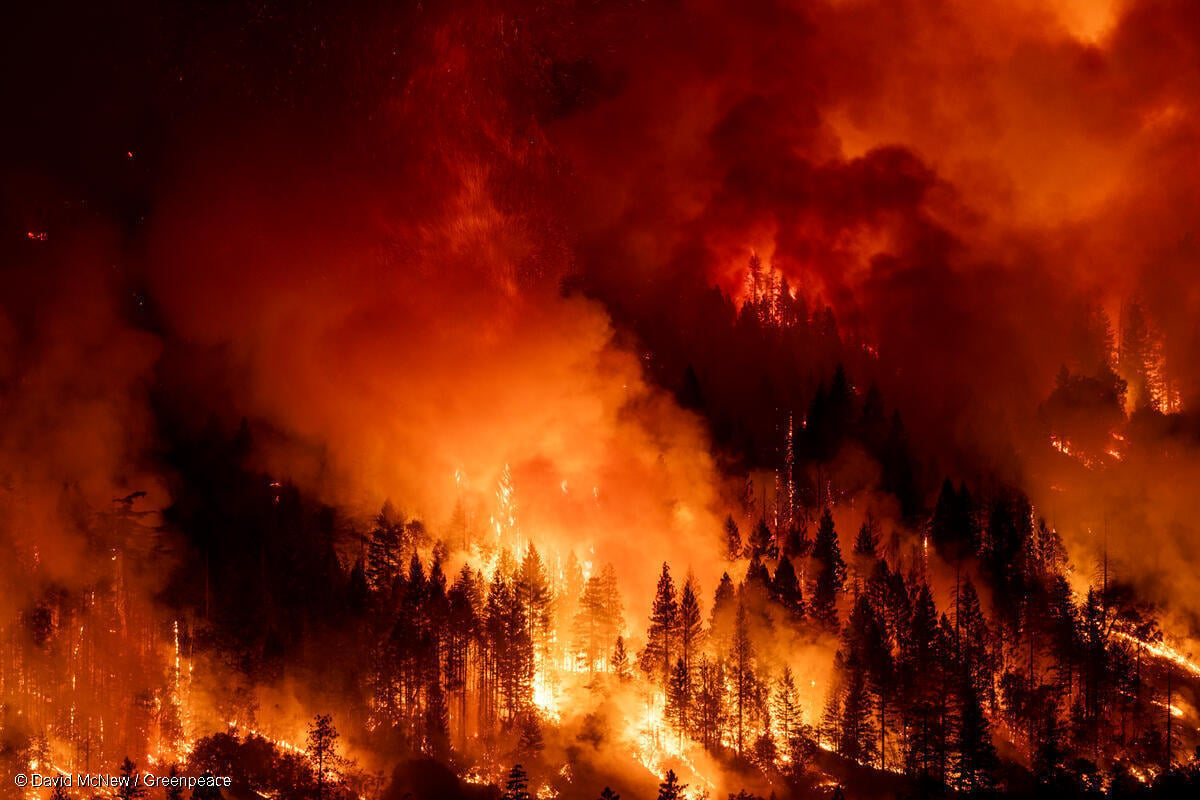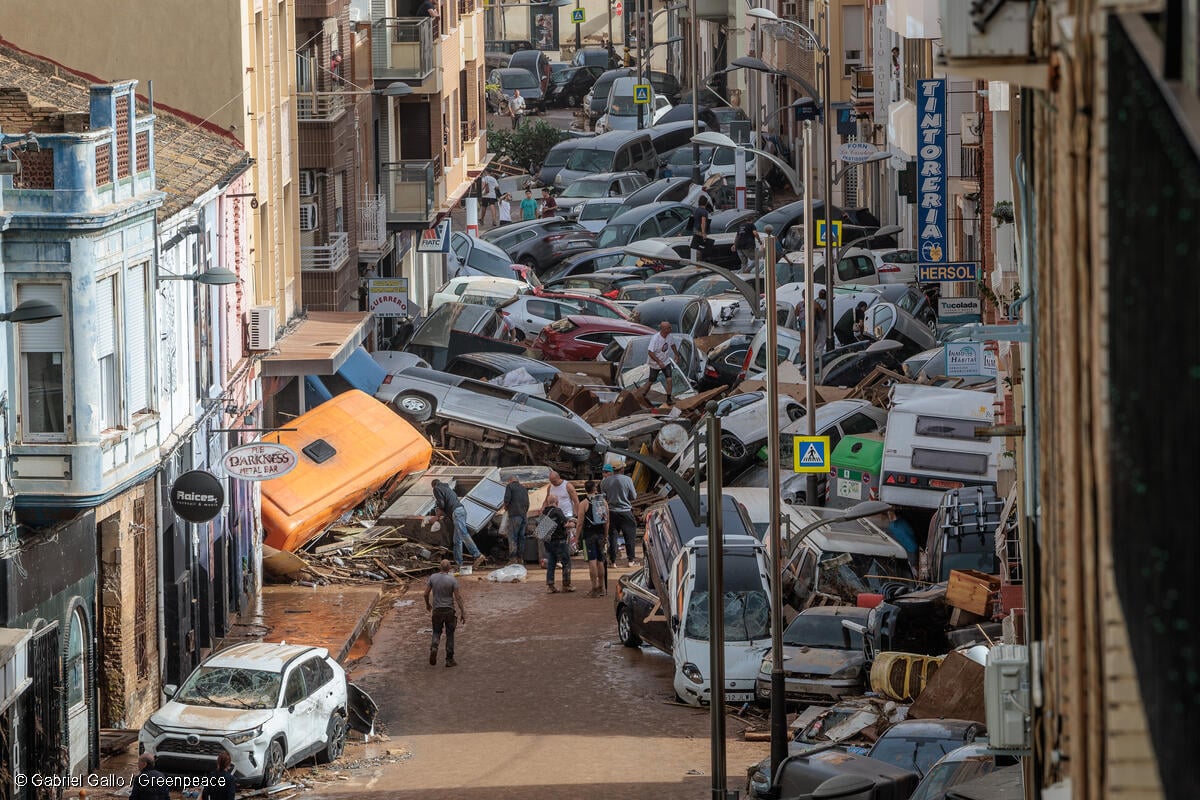*** Greenpeace protest photos and videos from EU summit
Brussels, 13 December 2019 – After late-night talks at a summit in Brussels, 27 out of 28 European governments agreed to reach climate neutrality by 2050, opening the door for discussions about more immediate EU action.
Governments also agreed that the European Commission would propose a revised 2030 EU emissions reduction target “in good time” for the next global climate conference in November 2020.
Despite Poland’s continued opposition, the Commission will proceed in early 2020 with a plan to enshrine the 2050 target into law. This would not require unanimous support from governments and could not be blocked by Warsaw.
Dozens of Greenpeace Belgium activists staged a spectacular protest on the summit venue on Thursday to warn that a long-term target needs to go hand-in-hand with more urgent action to confront the climate emergency.

The EU summit takes place at the close of the COP25 global climate conference in Madrid.
Greenpeace EU climate policy adviser Sebastian Mang said: “Europe can’t afford to get stuck in a rut. The climate emergency can’t wait and won’t negotiate. European governments must urgently shift their attention to much more immediate measures to ramp up climate action. Discussions must begin in earnest to bring the EU’s current emissions reduction target for 2030 in line with science. Failing to do so would make it much harder and more expensive to reach climate neutrality, and would threaten the Paris climate agreement the EU is so proud of.”
Greenpeace Poland projected an image of Polish prime minister Mateusz Morawiecki with the words “SRSLY?!” (and “Serio” in Polish) onto the most polluting coal plant in Europe, Bełchatów, to protest against his attempts to obstruct EU climate action.
A major disagreement at the summit ended with French President Emmanuel Macron siding with the Polish, Czech and Hungarian governments to force through a recognition that some countries claim to rely on nuclear energy.
Mang added: “Some governments blackmailed EU leaders to protect the financial interests of a struggling industry. If they were serious about confronting the climate emergency, they would recognise nuclear energy is a dangerous and expensive distraction that obstructs the development of real solutions like renewable energy. Instead of wasting precious time and money, they should focus on urgent measures to slash emissions in line with what climate science demands.”
Under the Paris climate agreement, governments must submit new or updated 2030 climate plans before the COP26 global climate summit in November 2020 in Glasgow. These plans must commit governments to take measures to limit global heating to as close as possible to 1.5°C, in order to avoid full-blown climate breakdown. A new UN report shows that current global climate pledges will lead to 3.2°C of global heating, while the EU’s current targets would lead to up to 3°C of heating. In order to increase the chances of limiting global heating to 1.5°C, Greenpeace is calling on the EU to upgrade its 2030 target to cut emissions by at least 65% (compared to 1990).
*** Read about the Greenpeace action at the EU summit on Thursday 12 December.
*** Read Greenpeace’s take on the European Green Deal.
*** Greenpeace protest photos and videos from EU summit protest
Contacts:
Sebastian Mang – Greenpeace EU climate policy adviser: +32 (0)479 601289, [email protected]
Greenpeace EU press desk: +32 (0)2 274 1911, [email protected]
This press comment is also available on www.greenpeace.eu
For breaking news and comment on EU affairs: www.twitter.com/GreenpeaceEU
Greenpeace is an independent global campaigning organisation that acts to change attitudes and behaviour, to protect and conserve the environment and to promote peace. Greenpeace does not accept donations from governments, the EU, businesses or political parties.



